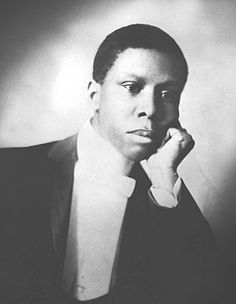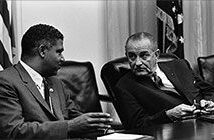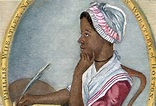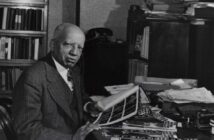
Paul Laurence Dunbar
Poet, Author
Poet and author Paul Laurence Dunbar was so talented and versatile that he succeeded in two worlds. He was so adept at writing verse in Black dialect that he became known as the “poet of his people,” while also cultivating a white audience that appreciated the brilliance and value of his work. Majors and Minors (1895), Dunbar’s second collection of verse, financed by several white friends, was a remarkable work containing some of his best poems in both Black dialect and standard English. Melodic and rhythmical, his lines in this and other works often sing and swing along gloriously. When the country’s reigning literary critic, William Dean Howells reviewed majors and Minors favorably, Dunbar became famous. And Howells’,introduction in Lyric of Lowly Life (1896) helped make Dunbar the most popular African-American writer in America at the time.. Dunbar had plenty of experience bridging racial gaps. Despite being the only African-American in his class at Central high School in Dayton, Ohio, he was well liked by teachers and classmates and was elected president of the school literary society and editor of the school paper in his senior year.. Even though he reached a point when publications competed for anything (poems, short stories, novels, prose, sketches, plays and musical lyrics) that sprang from his fertile mind, Dunbar wrote for a living and had to please popular reading tastes for the light,, romantic, and sentimental. But he did publish a few pieces that spoke out gently against the typical treatment of his people, including “We Wear the Mask” and “The Haunted Oak,” an anti-lynching poem.. Despite worsening health from the tuberculosis he succumbed to at age 34 in 1906,, Dunbar produced four collections of short stories and a quartet of novels in a creative outpouring between 1898 and 1904. His most notable short-story collections were Folks From Dixie and The Heart of Happy Hollow, and his novels included The Fanatics, a tale of political conflict involving two Civil War families, and The Sport of the Gods, about injustice suffered by an innocent African-American family.




